3D tech provider Dryada used SHINING 3D equipment to 3D scan Michelangelo’s David. They then 3D printed the model to create a mold and add yet another iconic sculpture to Argentina’s “Sculpture Capital”, the city of Resistencia. This project was initiated by the Urunday Foundation, whose goal is to foster art and creativity in its region, Chaco, and across the world.
Name: Urunday Foundation (Fundación Urunday)
Mission: To foster art, creativity, and cultural preservation in Argentina’s “Sculpture Capital”, and to unite artists from around the world
Location: Resistencia, Chaco, Argentina
Need: Produce a replica of Michelangelo’s David without damaging the fragile, original casting
Solutions: EinScan Pro 2X 2020, FreeScan UE 7, 3D printer
Results: A life-size replica of David
Table of Contents [hide]
Why build a statue of David in Resistencia?
The city of Resistencia, located in Argentina’s Chaco region, is famous for its sculptures. It’s home to over 650 sculptures, and has earned the national title of “Sculpture Capital”. Resistencia is a true open-roof museum that attracts tourists from all around the world.
It all started in 1989, when renowned local sculptor Fabriciano Gómez co-created the Urunday Foundation. He and four other locals had organized a first sculpture contest in 1988. It was a cultural success, and the group decided to found the Urunday Foundation to organize more contests.
The foundation has namely been organizing an international, bi-annual sculpture contest called “Bienal del Chaco” and sponsored by UNESCO. During the week-long event, ten sculptors from around the world gather to create original works in the open air, in front of the public. The finished sculptures then become part of the city’s heritage.
Before Fabriciano passed away in 2021, he dreamed of bringing all kinds of masterpieces to his city. According to an interview with the foundation’s current president, José Sebastián Eidman, “Fabriciano was always thinking about his people, his home… He was always thinking about what to bring to Chaco.”
Eidman added that there was one dream he cherished in particular: bringing the David to Chaco. Created in the early 1500s, the marble David sculpture has been considered one of the most important works of art in History.
Fabriciano is told to have said among close friends, “when we have David, there will be no need to go to Italy to meet him.”
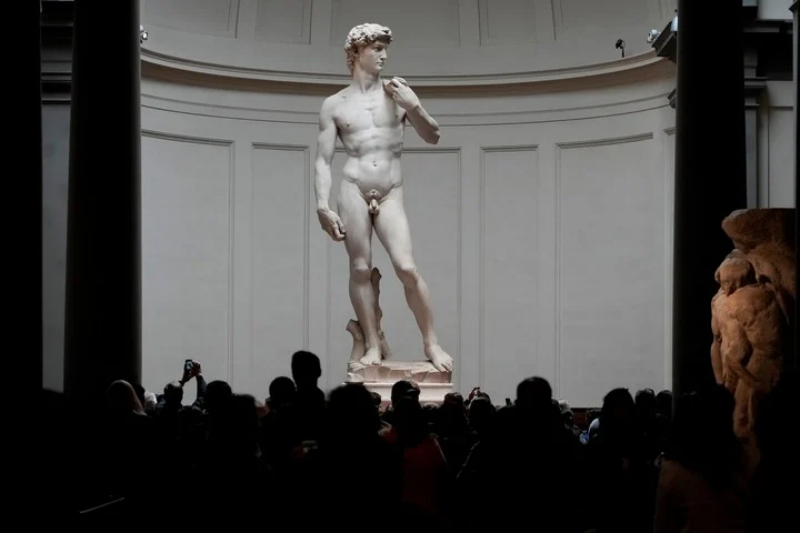
Why choose to 3D scan Michelangelo’s David?
The original David has been at the Accademia Gallery in Florence since 1873, and is unmovable for various reasons. In the past, however, castings were made and sent to various museums. One of them is the Cárcova Museum in Buenos Aires.
The Urunday Foundation contacted them in the hope of using its certified plaster casts of the David. Unfortunately, the museum was obliged to decline, concerned about damaging the fragile, decades-old casts. The Urunday Foundation didn’t find any viable alternatives until they met Denise Di Federico and Gisela Kraisman.
Denise is an artist and manages Dryada 3D Printer SRL, a company that provides 3D printing and 3D scanning products and services. Gisela is a sculptor with extensive experience who uses both traditional and digital sculpting techniques.
The pair introduced a new alternative: 3D scanning. This non-desctructive technology can capture objects in 3D without coming into physical contact with them. Córcova Museum thus kindly allowed Denise and Gisela to access the original castings and 3D scan them for replication.
A 3D David with a techno heart
Reproducing David involved four processes: 3D digitizing, 3D editing, 3D printing, and casting.
Leveraging the EinScan Pro 2X 2020 and FreeScan UE 7, the team scanned David’s original plaster-casted mold to create an accurate digital twin in 3D. “We did the scanning in two days, something that the traditional process takes months,” Denise explained. “We did it much faster and the work was never at risk.”
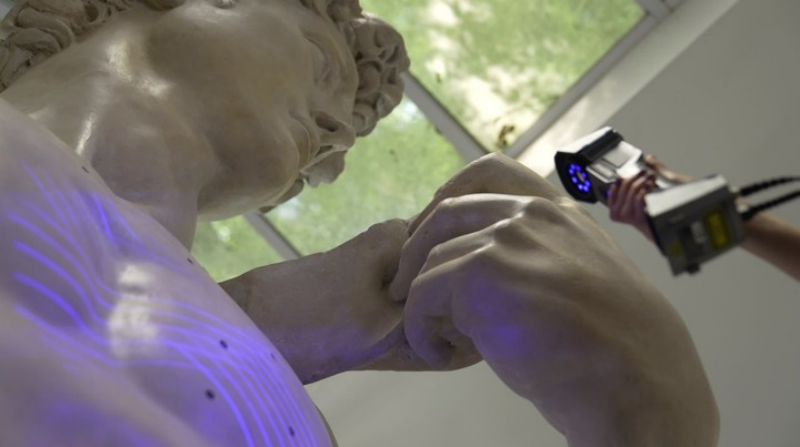
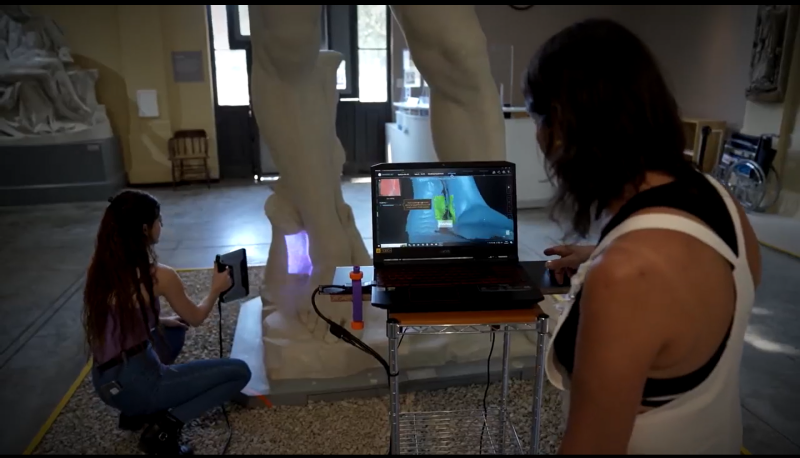
After obtaining exactly the same David on PC, the team made a digital restoration. They then generated 3D digital molds with dedicated software.
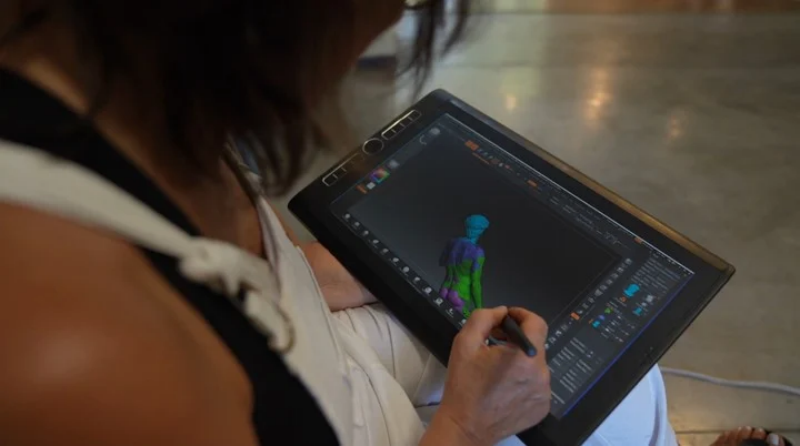
They cut the model into 100 parts that were compatible with 3D printing, and then printed. Denise and Gisela chose polylactic acid (PLA) as the material.
The team assembled all of these parts into various molds. They then transformed into castings with a special marine epoxy. This resin is common in boat construction, as it is resistant to all possible weather conditions.
Hence, the city of Resistencia will be able to leave this David replica outdoors for more than 100 years.
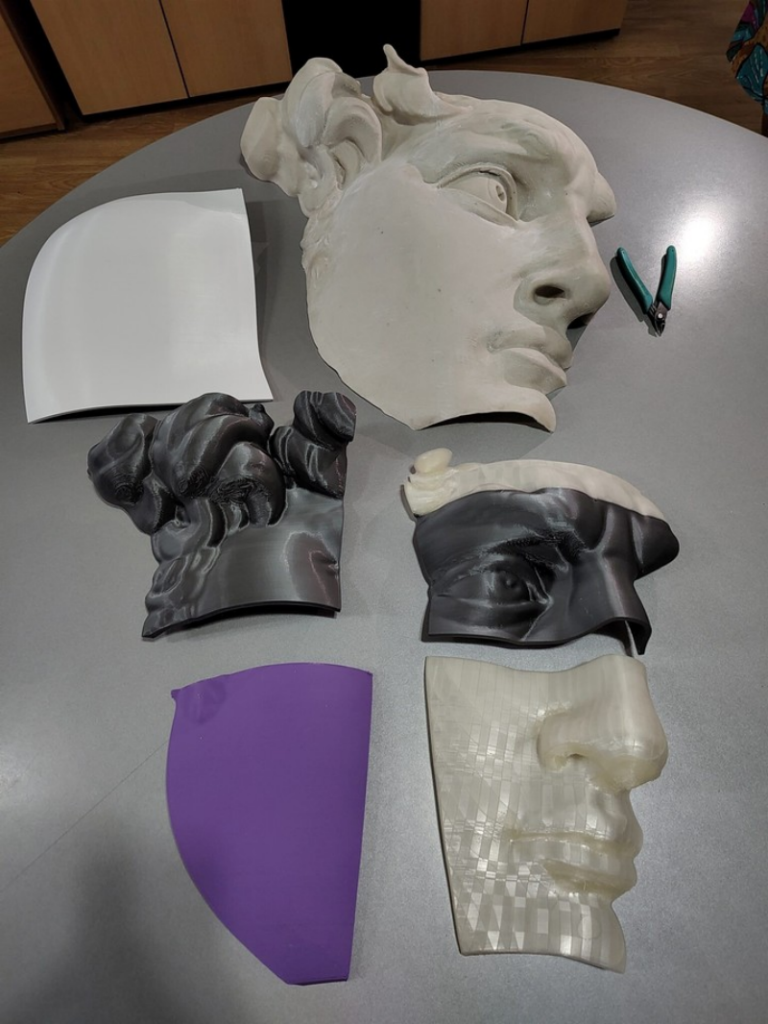
The replica is almost identical to the original, and did not cause any damage to the old casting. This is the first time in Argentina that a work of art has been reproduced using 3D digitization technology. It only took four months.
Conclusion
Empowered by SHINING 3D’s cutting-edge solutions, the Urunday Foundation achieved the impossible. They brought Michelangelo’s David to Resistencia, just as Fabriciano Gómez had envisioned. This remarkable feat has not only enriched the city’s sculptural heritage but also attracted tourists from far and wide to celebrate art, culture, and innovation.
Do you aspire to preserve your artistic heritage while embracing modern technology? Our solutions can help you create flawless replicas. Reach out to our experts for a free consultation, and together, let’s embrace the future of art preservation with SHINING 3D!





